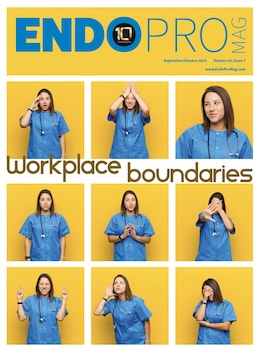In an upcoming study to be published in Gastroenterology, scientists at the Icahn School of Medicine at Mount Sinai and the University of North Carolina School of Medicine describe the clinical course of COVID-19 and risk factors for poor outcomes in a large cohort of IBD patients assembled through an international registry.
When the epidemic of COVID-19 began to spread across the nation, the scientists came together to create an international registry of individuals who have inflammatory bowel disease (IBD) and COVID-19. The registry, Surveillance Epidemiology of Coronavirus Under Research Exclusion for Inflammatory Bowel Disease (SECURE-IBD), as of now consists of 528 patients from 33 nations.
“We created the registry to better define the clinical course of COVID-19 in the IBD patient population and assess the relationship between demographics, clinical features, and IBD therapies on COVID-19 outcomes,” said Erica Brenner, MD, Pediatric Gastroenterology Fellow, UNC Children’s Hospital, study co-author.
The authors conclude that advancing age, comorbidities, and corticosteroids are linked to severe COVID-19 in IBD patients, but a causal relationship cannot be established. Interestingly, TNF antagonists do not seem to be linked to severe COVID-19.”One of our key takeaways for the IBD patient population is that it will be important to maintain remission with steroid-sparing therapies during this pandemic.”
Our discovery that TNF antagonist therapy is not linked to severe COVID-19 is reassuring news in the context of the high number of patients who need this therapy, presently the most frequently prescribed biologic therapy for IBD patients,” said study co-author, Ryan Ungaro, MD, Assistant Professor, Icahn School of Medicine at Mount Sinai and a gastroenterologist with Mount Sinai Hospital’s Feinstein IBD Center.
Source: University of North Carolina






